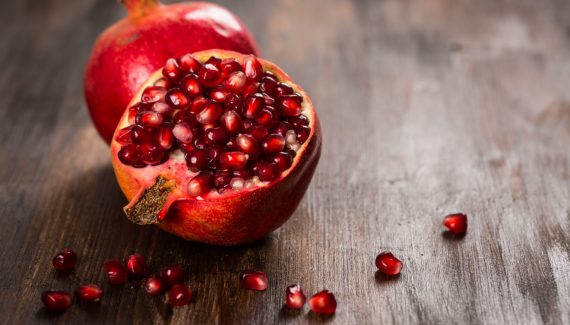More people are re-evaluating what goes into their plates—and especially what sweetens their food.
While refined sugar still dominates kitchens globally, its long-term impact on health is becoming increasingly concerning. In contrast, jaggery, a traditional unrefined sweetener made from sugarcane or palm sap, is experiencing a well-deserved revival backed by modern nutrition research.
Studies published in the Journal of Ayurveda and Integrated Medical Sciences and the Journal of Food Science and Technology highlight that jaggery retains a wide spectrum of minerals and vitamins naturally present in sugarcane. Sugar, on the other hand, is stripped of nearly all nutrients through aggressive processing. This makes jaggery far more than a sweetener—it’s a nutrient-rich functional food with multiple physiological benefits.
Jaggery vs Sugar
Although both jaggery and sugar come from the same plant sources, their processing methods create dramatic nutritional differences:
1. How is sugar made?
Refined sugar undergoes:
- Chemical purification
- Bleaching
- Charcoal and sulphur treatments
- Crystallization
This results in pure sucrose, offering sweetness but no nutritional value.
2. How is jaggery made?
Jaggery production is simple and natural:
- Fresh sugarcane or palm juice is boiled
- The liquid thickens into a paste
- Natural molasses and nutrients remain intact
Because nothing is removed or bleached, jaggery retains:
- Iron
- Calcium
- Phosphorus
- Magnesium
- Potassium
These minerals are essential for:
- Bone strength
- Nervous system function
- Blood formation
- Fluid balance
According to Ayurvedic texts, jaggery (known as ‘Guda‘) is praised for its ability to balance the doshas, cleanse the system, and support immunity—claims that modern research increasingly supports.

The Hidden Impact of Sugar on the Body
Excessive sugar consumption has been linked with multiple health issues. Medical research highlights several ways refined sugar works against the body:
1. Rapid glucose spikes
Sugar is absorbed quickly, triggering sudden rises in blood sugar. This forces the pancreas to produce more insulin, eventually causing:
- Insulin resistance
- Higher risk of type 2 diabetes
2. Increased cardiovascular risk
Diets high in added sugar contribute to:
- Inflammation
- High triglycerides
- Greater cardiovascular mortality
3. Cellular damage
High sugar levels trigger the formation of conditions that can generate damaged cells, which can lead to:
- Damaged skin collagen
- Reduced skin elasticity
- Accelerated ageing
4. Weakened immunity
Sugar temporarily suppresses white blood cell activity, reducing the body’s ability to fight infections.
5. Liver strain
Refined sugar contains 50% fructose, which:
- Converts into fat inside the liver
- Contributes to non-alcoholic fatty liver disease
Why Is Jaggery Better?
Recent research has sparked renewed scientific interest in jaggery’s potential.
A study in the Journal of Food Science and Technology found that jaggery can successfully replace sugar in baked items like muffins—without compromising taste or safety. Although the muffins were slightly darker and denser, they remained stable for up to three weeks, showing jaggery’s strong suitability for modern food manufacturing.
Jaggery contains:
- Antioxidants
- Minerals
- B-complex vitamins and folic acid
Health Benefits
- Helps clear pollutants from the lungs
- Traditionally used to soothe cough, cold, and throat irritation
- Boosts digestive enzymes
- Stimulates bile production
- Prevents acidity and improves gut motility
- Low glycemic index (GI) compared to sugar
- Provides steady energy without sudden glucose spikes
- Potassium helps regulate fluids and reduces bloating
- Magnesium promotes muscle relaxation and stress relief
- Iron and folate support haemoglobin production and prevent anaemia
Ayurveda also recommends combining jaggery with herbs like:
- Turmeric (anti-inflammatory)
- Tulsi (immunity-boosting)
- Black pepper (enhanced digestion)
These combinations are gaining popularity as natural wellness remedies.

Can You Replace Sugar Entirely with Jaggery?
In many recipes, yes—jaggery is a healthier alternative. It supports wellness, is unrefined, and avoids harmful chemicals used in sugar production. Darker jaggery is usually considered higher quality because it undergoes minimal processing and retains more nutrients.
However:
- Jaggery is still a sugar source
- It should be consumed in moderation, especially by diabetics
Jaggery consumption declined for decades as refined sugar became industrially widespread. Today, rising awareness about lifestyle diseases has brought jaggery back into the spotlight. People worldwide are rediscovering this ancient sweetener as a healthier, more sustainable alternative.
Disclaimer: This article is for informational purposes only. It is not a substitute for medical advice. It is advisable to consult a nutritionist or healthcare professional before making any dietary changes.



